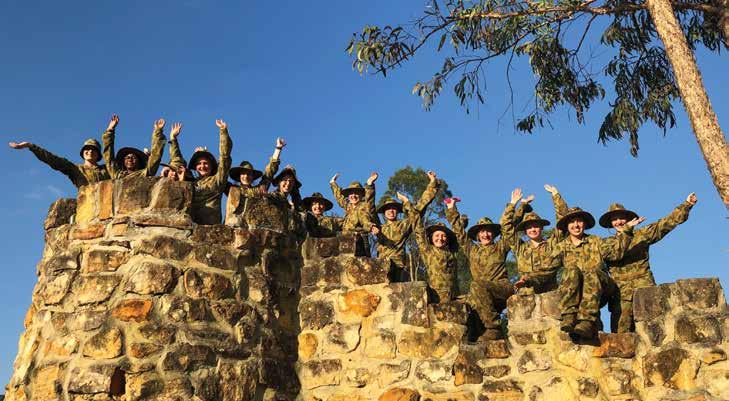BEYOND THE CLASSOOM Experiential learning: The what, when, how, where and, most importantly, why? By Stuart Clark, Director of Experiential Learning WHAT IS EXPERIENTIAL EDUCATION?
T
he Association of Experiential Education (n.d.), which was founded in 1972 and currently has members from 35 countries, summarises experiential education as “challenge and experience followed by reflection leading to learning and growth”. Experiential education is a teaching philosophy that informs many different methodologies that educators use in their craft. In experiential learning, educators purposefully engage with learners in creating and facilitating direct, concrete experiences that challenge the learners to communicate and collaborate with others to problem solve, achieve a goal, possibly to face fears and anxieties, and challenge preconceived notions of the world and of themselves. It is a feature in experiential learning that these experiences are followed by focused reflection in order to increase knowledge, develop skills, clarify values and develop people’s capacity to contribute to their communities. Importantly, there is also an emphasis that adventure and challenge should be core principles of the learner experience, as such experiences push the learner from their comfort zone to the learning zone, where the greatest educational gains can occur. Further, experiential learning has the opportunity to crucially deepen interpersonal skills like collaboration, leadership and problem-solving, which will positively influence the learner’s future performance in all aspects of life.
The general concept of learning through experience is ancient. Around 350 BCE, Aristotle wrote in the Nicomachean Ethics: “for the things we have to learn before we can do them, we learn by doing them”. But as a formal educational theory, experiential learning is much more contemporary. Beginning in the 1970s, David A. Kolb helped to develop the modern theory of experiential learning, drawing heavily on the work of John Dewey, Kurt Lewin and Jean Piaget.
16
|
Illuminate EDITION 4 2020
Summit climb in the Myall Lakes National Park
KOLB’S EXPERIENTIAL LEARNING MODEL Experiential learning focuses on the learning process for the individual. A good example of experiential learning involves learning how to ride a bike, a process which can illustrate the four-step Experiential Learning model as set forth by Kolb and outlined in Figure 1 below.
Concrete Experience (Doing/having an experience)
Reflective Observation
Active Experimentation
(Reviewing/reflecting on the experience)
(Planning/trying out what you have learned)
Abstract Conceptualisation (Concluding/learning from the experience)
Figure 1, Kolb’s Experiential Learning model
Pymble Ladies’ College













